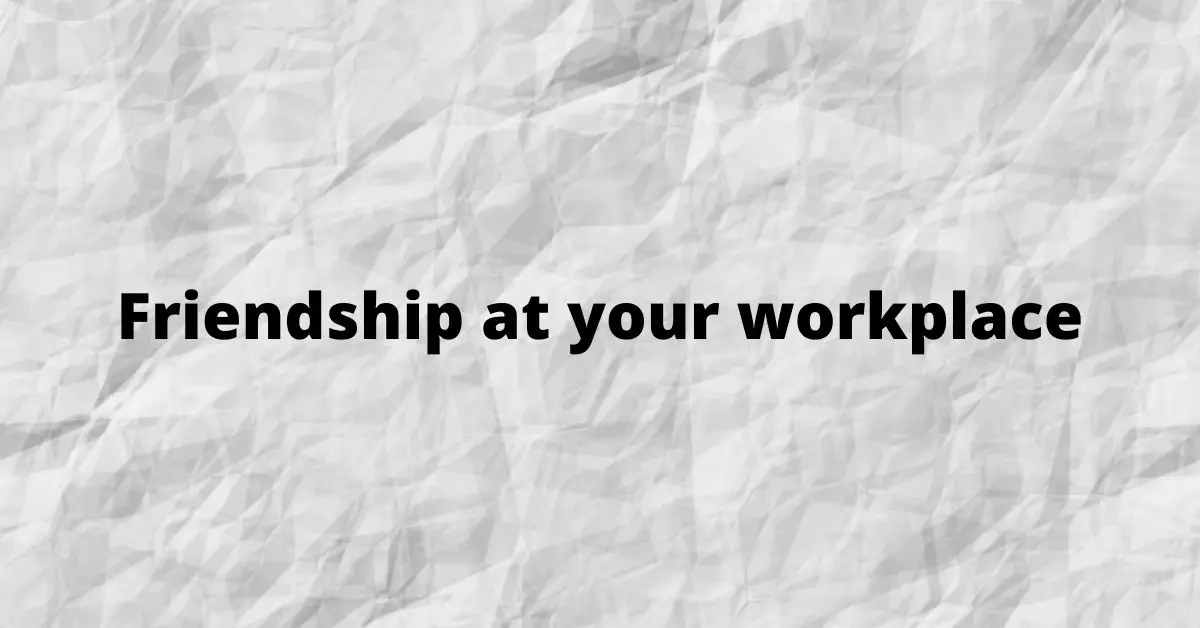Social relationships are a good sign for the happiness of employees at work. Despite the direct link between social interaction and the positive effects on our well-being, the stigmas and concerns that traditionally surround personal relationships at work can make navigation friendships in the professional sphere a little confusing.
Although uncomfortable, this combination makes sense. Just as companies want to promote productivity and success, they also rightly want to prevent inappropriate behavior. Anxiety, favoritism, abuse of authority, and conflict of interest are examples of the negative aspects that can result from a close social connection between co-workers.
At a time when people are pursuing both careers and personal well-being, achieving a healthy work-life balance has never been more important. In fact, the factor that most leading scientists and psychologists agree on is that social relationships are the most accurate indicator of overall happiness.
Friendship in the workplace causes challenges that private, social interactions do not face. You need to strike a balance between your personal needs and the needs of the workplace for harmony and contribution.
Research shows that even small conversations with co-workers can bring significant benefits to productivity. It is important to recognize that when social interaction with friends turns into distraction, they ultimately impair your ability to achieve your goals. If friendship becomes a hierarchy, it is also important to recognize the essence of that relationship.
You need to manage the boundaries properly so that you do not appear to be in an unrelated relationship or create a favorable environment.
One of the main concerns of employees when it comes to building close relationships between other co-workers is obedience. Your coworkers may be wondering if you’re talking behind people’s backs. Particularly in relation to the manager-employee relationship, they are concerned that you are changing tidbits that you should not share.
Even if it sounds like spreading rumors or laughing at co-workers, for example, it can make people nervous and negatively affect your credibility.
The best way to avoid bias – or even to notice bias – is to deliberately treat each team member with equal care, consideration and respect. Make sure you listen to your coworkers, not just your friends, when they come up with ideas or share information. It is incredibly crucial to make each individual valued by giving them the attention they need.
As a leader, you may want to consider whether you should have a close friend in your direct team. This can create the impression that it will add additional barriers to the contributions and productivity of the rest of the team. If you have a close friend in your team, be careful to avoid special treatment on that person to ensure equal time for all team members.
It is very important to build positive relationships in the workplace, to have good cooperation with co-workers, it gives a sense of security, that you have a network of people you can rely on. The better the balance between those people, the better the whole organization.


